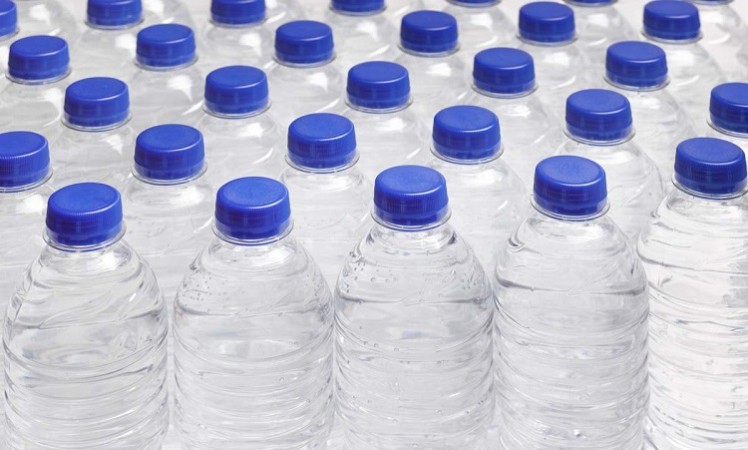
Microplastics, those minuscule plastic particles invisible to the naked eye, have become an increasingly concerning issue. They have infiltrated our food, water, and air, posing potential health risks when ingested or inhaled. In particular, the presence of microplastics in water bottles is a cause for alarm. When these containers are exposed to prolonged sunlight, the plastic can break down into small fragments or microplastics. As many of us rely on bottled water, it's crucial to understand how these microplastics affect our health in the long run.
What Are Microplastics?
Microplastics are tiny plastic particles, usually measuring less than 5 millimeters in size. They come from various sources, including the breakdown of larger plastics, microbeads in personal care products, and industrial processes. Microplastics can be categorized into two main types: primary microplastics, which are intentionally manufactured small plastic particles, and secondary microplastics, which result from the degradation of larger plastic items.
The Pervasive Presence of Microplastics
Microplastics have permeated nearly every corner of our environment. They are found in our oceans, lakes, and rivers, as well as in the soil and even in the air we breathe. It's concerning to note that microplastics have also made their way into the bottles of water many of us consume daily.
Sunlight and Microplastics in Water Bottles
One less-discussed aspect of the microplastic problem is how sunlight interacts with plastic bottles. Prolonged exposure to ultraviolet (UV) rays from sunlight can break down plastic bottles, causing them to release microplastics into the water they contain. This is particularly worrisome, as it has the potential to impact the safety of the drinking water that countless individuals rely on.
Health Implications of Microplastics Ingestion
While the full extent of the health effects of microplastics is still being researched, some concerns have emerged. When microplastics enter the human body through ingestion, they may accumulate over time. Here are a few ways in which microplastics may affect health:
Digestive Issues: Microplastics might irritate the digestive tract, potentially leading to inflammation or other gastrointestinal problems.
Nutrient Absorption: There is a concern that microplastics may interfere with the absorption of essential nutrients, impacting overall health.
Chemical Contaminants: Microplastics can absorb and transport chemical pollutants from the environment. When consumed, these contaminants may enter the body, posing health risks.
Microbial Interactions: Microplastics in the gut may alter the composition of the gut microbiome, which is crucial for digestion and overall health.
Inflammatory Responses: There's ongoing research into whether microplastics might trigger immune responses or chronic inflammation, potentially leading to various health issues.
The Issue of Microplastics in Drinking Water
The presence of microplastics in bottled water is of particular concern because, in many regions, bottled water is the primary source of drinking water. People assume that this water is safe, but the infiltration of microplastics from the bottle itself raises questions about the overall quality of the water they are consuming.
Protecting Your Health
While scientists continue to study the health implications of microplastics, it is prudent to take steps to minimize exposure. Here are some practical measures you can adopt:
Choose Reusable Containers: Reducing the use of single-use plastic bottles can help lessen the release of microplastics into the environment.
Use a Water Filter: Invest in a water filtration system to remove potential contaminants, including microplastics, from your drinking water.
Educate Yourself: Stay informed about the quality of your drinking water and the materials used in your water bottles.
Advocate for Change: Support policies and initiatives aimed at reducing plastic pollution and promoting sustainable alternatives.
Microplastics have become an undeniable part of our environment, and their presence in water bottles raises significant health concerns. While the full impact of microplastics on human health is still being studied, it's important to take proactive steps to minimize exposure and advocate for a cleaner, healthier environment. In the long run, understanding the risks and making informed choices about our consumption of plastic products can help protect our health and the health of our planet.